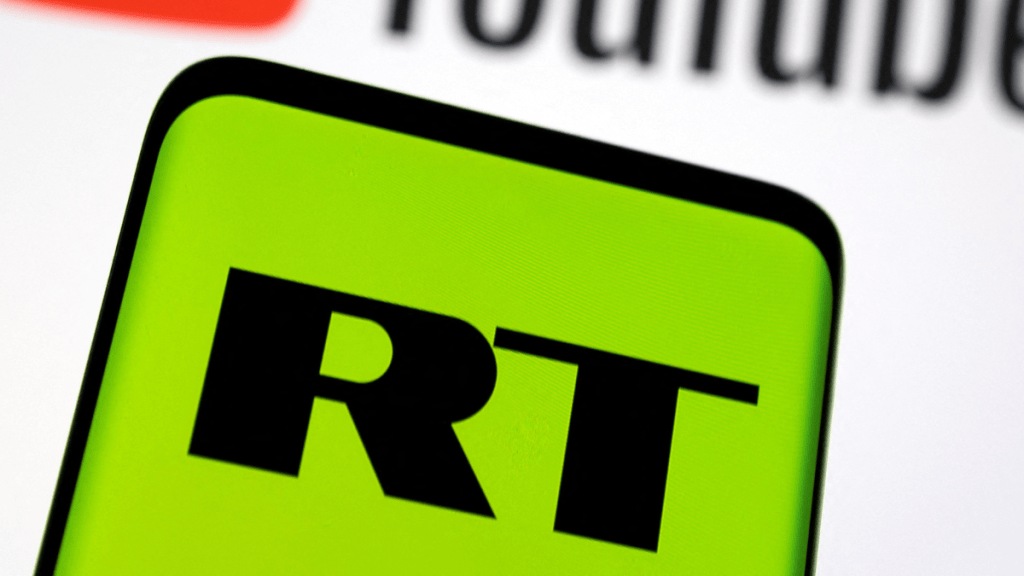In recent developments, the United States has called on India to ban the Russian news channel RT (formerly Russia Today), branding it as a “propaganda machine” of the Russian intelligence services. This request follows the US ban on RT, which was implemented due to allegations of its involvement in influencing American elections and spreading misinformation. Despite these allegations, India is unlikely to act on this request, given its longstanding friendly relations with Russia and its own position on media censorship.
RT’s ban in the US was initiated after concerns were raised about its role in manipulating public opinion during the 2016 US elections. American authorities accused RT of being an arm of the Kremlin, deliberately spreading disinformation to disrupt democratic processes not only in the US but across the globe. US Secretary of State Antony Blinken has been a vocal critic of RT, accusing it of being deeply intertwined with Russian intelligence efforts. Blinken has further accused the channel of having “cyber-competence” capable of undermining democratic institutions and processes.
RT’s editor-in-chief, Margarita Simonyan, and several other Russian journalists have been placed under sanctions by the US, and two RT journalists were recently charged with aggravated assault. In an attempt to curtail the influence of RT, Blinken has urged nations worldwide to censor the news organization. This push to ban RT comes amidst an ongoing geopolitical struggle between Russia and the West, primarily following Russia’s invasion of Ukraine.
In India, RT enjoys significant viewership, with its content reaching a large number of English-speaking audiences and also expanding its reach through a Hindi-language social media platform. RT has grown in popularity in India and other parts of the world, claiming that its main mission is to counter the Western narrative and offer Russia’s perspective on global affairs. This increased presence has raised concerns in the West, particularly in the US, which has accused RT of disseminating false information to manipulate public opinion.
The Indian government, however, has not issued any official response to the US’s request to ban RT. The Ministry of External Affairs remains silent on the matter, reflecting India’s careful approach to balancing its foreign relations with both the US and Russia. India has historically maintained strong ties with Russia, particularly in defence and energy cooperation, and it is unlikely that India will take a drastic step that could strain this relationship.
The US has labelled RT a “propaganda arm” of the Kremlin, with Blinken stating that the channel broadcasts “nonsense news” intended to disrupt democratic processes globally. In contrast, Russia sees RT as a necessary counterbalance to Western media outlets like the BBC, which, though state-funded, is regarded by the West as a credible source of information. RT’s management has consistently defended its content, claiming that it offers an alternative view to the Western media narrative and is not involved in any nefarious activities.
Russian Foreign Ministry Spokeswoman Maria Zakharova has strongly condemned the US for its actions against RT and other Russian media outlets. In a statement issued on September 16, 2024, Zakharova denounced the US for launching a “witch-hunt” against Russian media and accused Washington of stifling freedom of speech across the globe. According to Zakharova, the US is attempting to manipulate global public opinion by censoring media that offers a perspective different from the mainstream Western narrative.
She highlighted the recent sanctions imposed by the US against Russian media outlets such as Rossiya Segodnya, Sputnik, and RT, as well as individual journalists like Margarita Simonyan. Zakharova described the actions as part of a broader effort by the US to maintain control over the global information landscape, employing what she called “totalitarian censorship practices” far beyond its borders. She argued that the US’s efforts to suppress Russian media were a direct violation of international commitments to ensure media pluralism.
Zakharova also recounted incidents where Russian journalists faced aggressive actions by US law enforcement, including a case where an RT journalist’s home was searched by FBI agents. She asserted that these actions demonstrate the US’s disregard for its own principles, including the freedom of the press as enshrined in the US Constitution.
The Russian government has vowed to respond to these actions, with Zakharova warning that the persecution of Russian media by the US will not go unanswered. She accused the US of using fear and misinformation to control public discourse and suggested that Washington’s tactics would ultimately backfire as Russian media outlets like RT continue to grow in influence globally.
